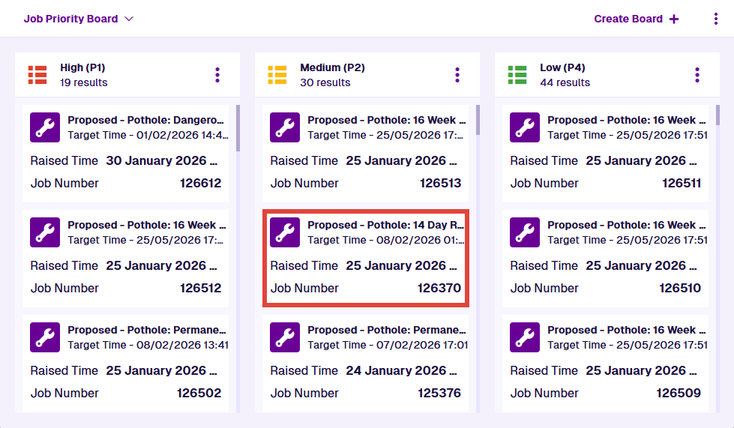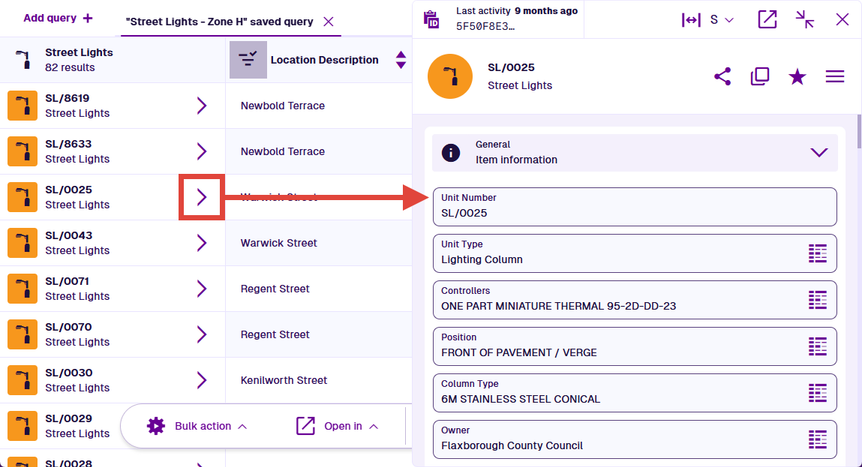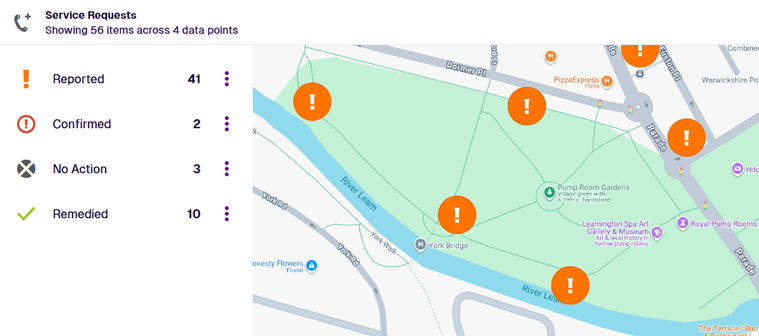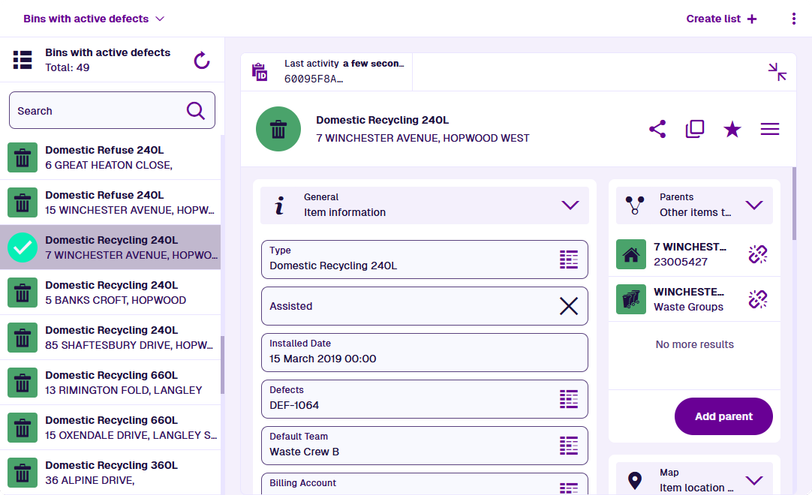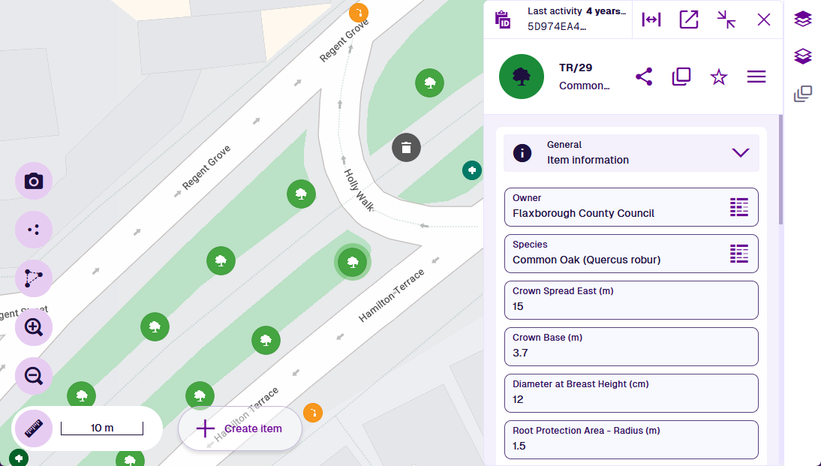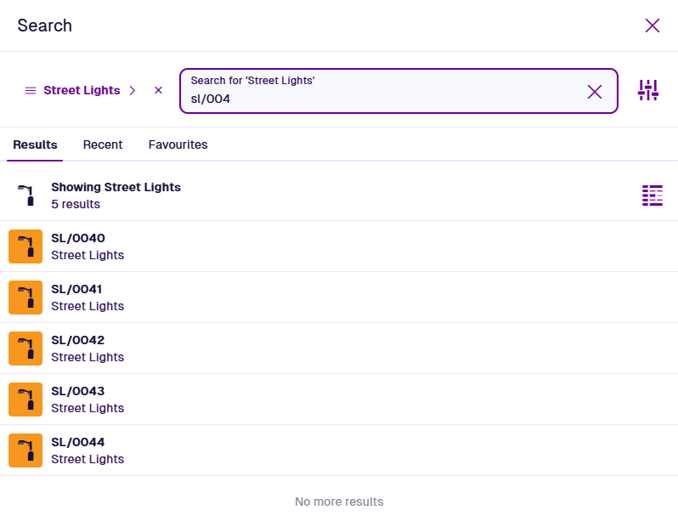View items
Open items in the Asset Management Apps
When using the Asset Management Apps, you can select items to open them and view their details. This lets you examine and edit the attribute values they hold, with any changes recorded in their audit log.
It also lets you view an item's relationships and understand how it links to other items in your company database. For example, you can see:
-
the defects registered against an asset item
-
the parent asset of a scheduled inspection item
-
the job work items that make up a job item
Select an item
Typically, whenever you see items displayed in a list or as icons on a background, you can select one to view its details (except when using the item picker to populate a data field).
Here are some of the ways you can encounter items in the Asset Management Apps.
Boards
The Boards app displays items of a particular design/interface, separated into different columns depending on the value they hold for a specific attribute. It provides a great way to track the status or progress of things!
When viewing a board, select an item within a column to view its details in a popup. To open the item in a new browser tab, select Open in the item header. Otherwise, select Close to return to the board.
Data Explorer
The Data Explorer app displays items of a particular design/interface in a table format, with selected attributes as columns and the item results as rows of values. You can filter and sort items by their attribute values, perform bulk actions on them, and even export the data for use elsewhere!
When viewing the results of a query, select an item's button to view its details in a side panel.
Use the buttons in the item header to control the item panel. Select to change the panel's width, to open the item in a new browser tab and to hide the panel without closing it.
Hubs
The Hubs app displays widgets containing data points. Each data point represents a query that fetches qualifying items of a specific design/interface. Some widgets display an interactive map alongside their data points, showing the location of each item result (that has geometry).
Select an item on the map to view its details in a popup. Alternatively, select a data point to open its items in another Asset App.
Lists
The Lists app displays items of a particular design/interface in a vertical list, according to the conditions set in its query. It provides a quick and convenient way to access sets of items that you regularly need to work with.
When viewing a list, select an item to view its details alongside the list.
Maps
The Maps app displays items of various designs/interfaces on top of basemap imagery. Use the Layers panel to control which items are shown. This lets you browse items by location and visualise their geometries in a geographical context.
Select an item on the map to view its details in a side panel.
Use the buttons in the item header to control the item panel. Select to change the panel's width, to open the item in a new browser tab and to hide the panel without closing it.
Search
The Search is always accessible from the app bar. Among other things, it lets you search for items of a particular design/interface with values that match your search terms. You can search for text, numbers, dates or times. All results containing full or partial matches will be displayed.
Select a result to view its details. To open it in a new browser tab, use middle-click or Ctrl-click.
